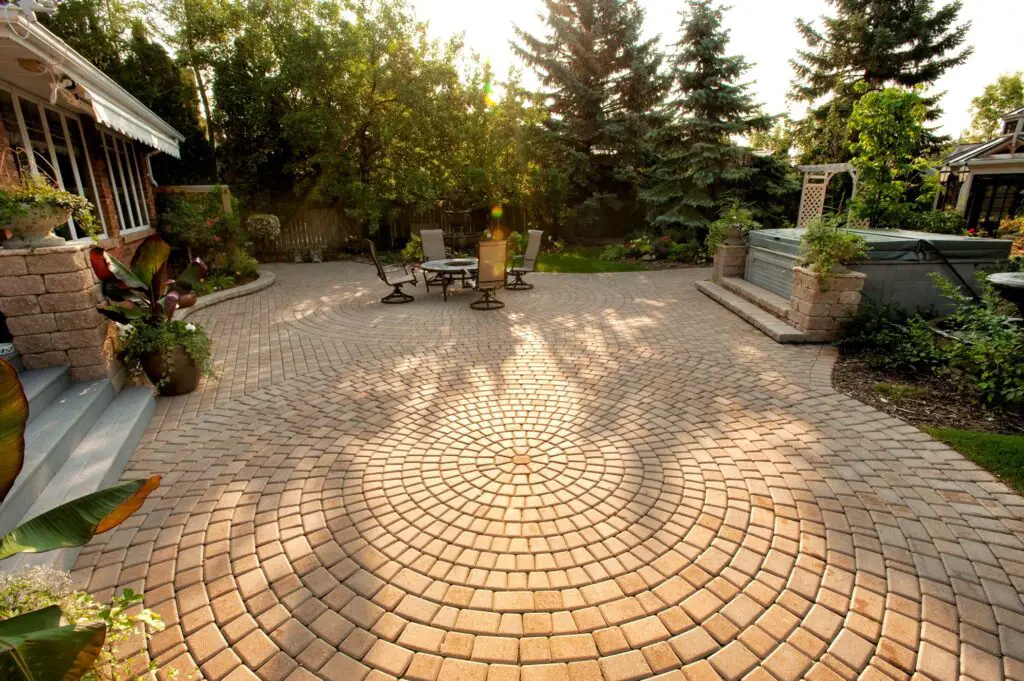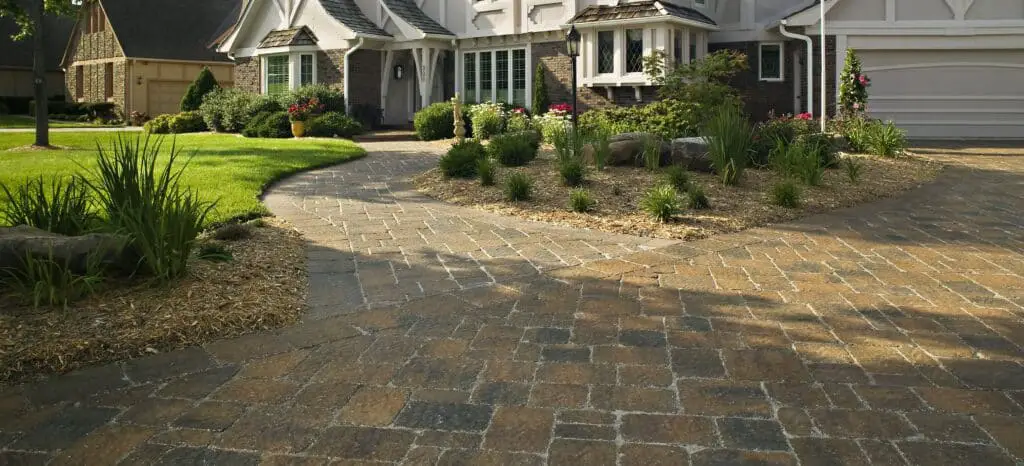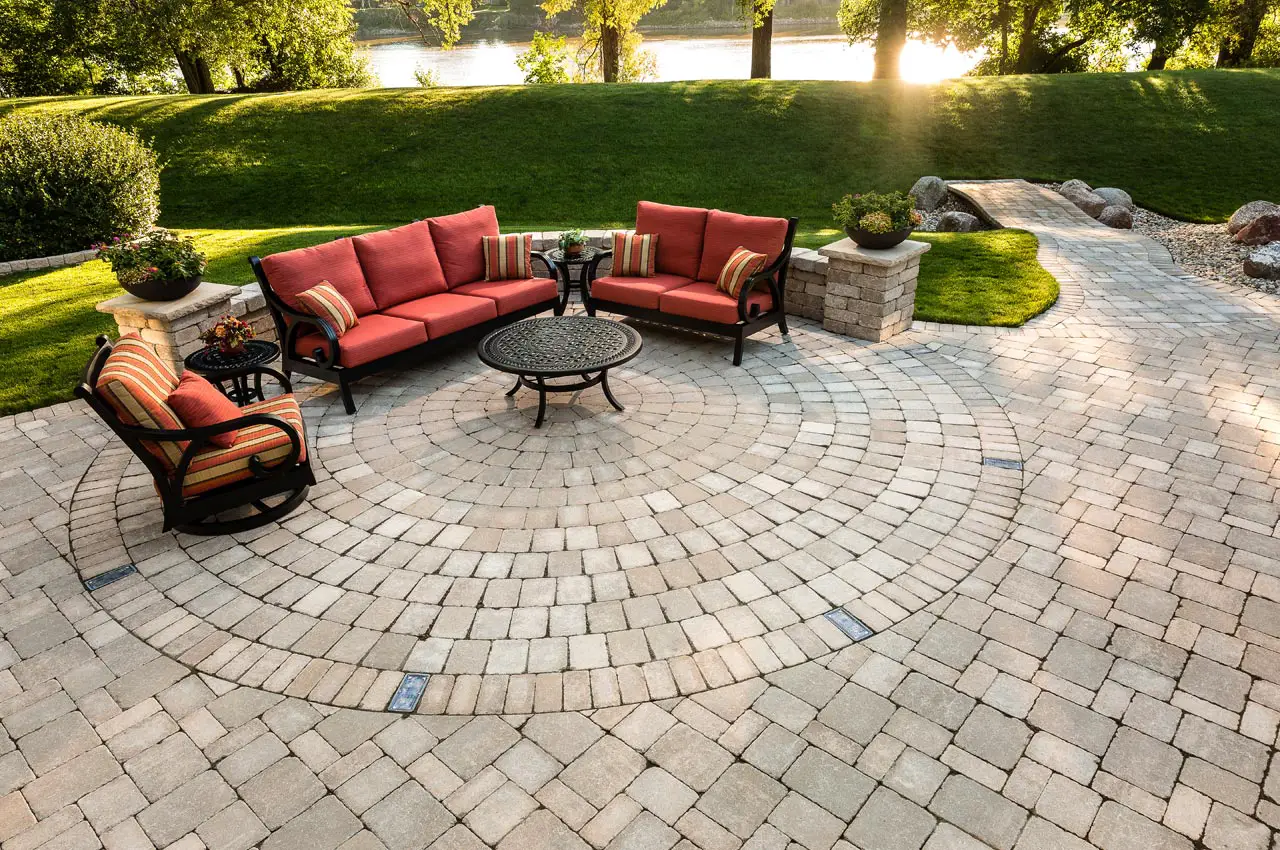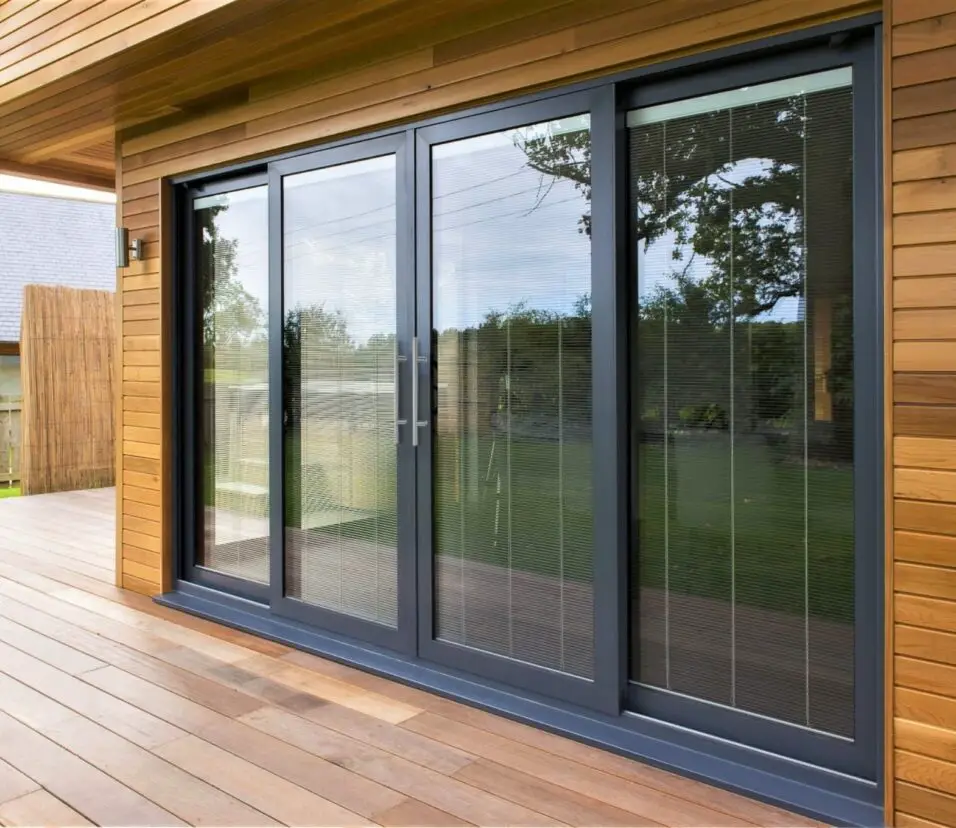How Thick Are Patio Pavers
Introduction
How Thick Are Patio Pavers: When it comes to designing your outdoor space, patio pavers are a popular choice. They offer durability, versatility, and a wide range of design options. However, one important factor to consider when installing patio pavers is their thickness. The thickness of patio pavers can vary depending on the type of material used and the intended use of the patio. In this article, we will explore the different thickness options available for patio private pavers and discuss their advantages and disadvantages.
For areas that will experience heavier loads, such as driveways or commercial spaces, thicker patio pavers may be required. 3-inch thick pavers are commonly used in these situations as they offer increased strength and durability. These pavers are often made from interlocking concrete or clay and can withstand the weight of vehicles without cracking or shifting. However, it is important to note that thicker pavers may be more challenging to install and may require professional assistance.
In addition to the standard 2-inch and 3-inch options, there are also thinner patio pavers available. These pavers, typically around 1 inch thick, are often used for overlaying existing concrete surfaces or creating a more seamless transition between indoor and outdoor spaces. While they may not be as strong as thicker pavers, they can still provide a durable and attractive surface for light foot traffic areas.

What is the ideal paver thickness?
The ideal paver thickness depends on several factors, including the type of paver being used, the intended use of the paved surface, and the expected load-bearing capacity. Pavers are commonly used for various outdoor applications, such as driveways, walkways, patios, and pool decks. The thickness of the paver plays a crucial role in determining its durability and longevity.
For light-duty applications, such as pedestrian walkways or patios, pavers with a thickness of 1 to 1.5 inches are typically sufficient. These thinner pavers are easier to install and are suitable for areas with minimal foot traffic or light furniture. They are also more cost-effective compared to thicker pavers.
However, for areas that will experience heavier loads, such as driveways or commercial walkways, thicker pavers are recommended. Pavers with a thickness of 2 to 3 inches are commonly used for these applications. The increased thickness provides better resistance to cracking and shifting under the weight of vehicles or heavy foot traffic.
It is important to note that the thickness of the paver alone may not be enough to ensure its durability. The base and sub-base layers beneath the pavers also play a crucial role in providing stability and preventing shifting or settling. Proper installation techniques, including adequate compaction and the use of appropriate base materials, are essential for achieving a long-lasting paved surface.
In addition to load-bearing capacity, the type of paver material should also be considered when determining the ideal thickness. Some materials, such as concrete pavers, may require a thicker profile to withstand heavy loads, while others, such as clay or natural stone pavers, may be able to achieve the same strength with a thinner profile.
How much weight can 2 inch pavers hold?
When it comes to choosing pavers for your outdoor spaces, it is important to consider their weight-bearing capacity. One common question that arises is how much weight can 2-inch pavers hold? The answer to this question depends on various factors, including the type of material used, the installation method, and the overall design of the paver system.
Factors affecting weight-bearing capacity:
The weight-bearing capacity of 2-inch pavers can vary depending on the material they are made of. For example, concrete pavers are known for their strength and durability, making them capable of supporting heavy loads. On the other hand, clay pavers may have a lower weight-bearing capacity due to their composition.
Installation method:
The way the pavers are installed also plays a crucial role in determining their weight-bearing capacity. Proper installation techniques, such as using a solid base and adequate jointing sand, can enhance the overall strength of the paver system. Additionally, the use of edge restraints and proper compaction during installation can help distribute the weight evenly and prevent shifting or cracking of the pavers.
Design of the paver system:
The design of the paver system, including the pattern and layout, can impact its weight-bearing capacity. A well-designed system with interlocking pavers can distribute the weight more effectively, allowing for higher load-bearing capacity. On the other hand, a poorly designed system with gaps or uneven surfaces may result in reduced weight-bearing capacity.
How thick is a standard brick paver?
A normal brick paver is often used for landscaping and flooring outside. It is a common choice because it looks good and lasts a long time. The width of the brick pavers is an important thing to think about when you use them. Standard brick pavers come in different thicknesses, based on the application and the company that makes them. But there are some general rules that can help you figure out how thick a normal brick paver is on average.
It is normal for brick pavers to come in thicknesses between 1 3/8 inches and 3 1/8 inches. The width that is most often used in homes is 2 3/8 inches. This thickness strikes a good mix between being strong and being easy to install. It can be used on patios, walks, driveways, and most other outdoor areas.
For business uses or places with a lot of foot traffic, you might need a thicker brick paver. Most of these bricks are 3 1/8 inches thick and are made to handle the extra wear and tear. They are often found in places with a lot of foot activity, like parking lots, plazas, and sidewalks.
There are different types of bricks that can be used, so the width of a brick paver can also be different. For instance, clay brick pavers tend to be thicker than concrete brick pavers. This is because clay bricks are denser and heavier, so they need a thicker shape to stay stable and last longer.
Along with width, the brick paver’s size and shape can also affect how strong and long-lasting it is. In general, pavers that are bigger and thicker will last longer and work better for heavy-duty jobs. There is a chance that they will be harder to install and need more help.
Should I use thin or thick pavers?
When it comes to choosing between thin or thick pavers for your project, there are several factors to consider. The decision ultimately depends on your specific needs and preferences. Thin pavers are typically around 1 inch thick, while thick pavers can range from 2 to 4 inches in thickness. Each option has its own advantages and disadvantages, so it’s important to weigh them carefully before making a decision.
Thin pavers are a popular choice for many homeowners due to their affordability and ease of installation. They are lighter and easier to handle, making them a great option for DIY projects. Thin pavers are also more flexible, which allows for easier cutting and shaping to fit irregular spaces. Additionally, they can be laid directly over existing concrete surfaces, saving time and money on demolition.
Thick pavers, on the other hand, offer greater durability and strength. They are better suited for high-traffic areas and heavy loads, making them ideal for driveways and commercial applications. Thick pavers are less likely to crack or break under pressure, and they can withstand harsh weather conditions better than their thin counterparts. However, they are generally more expensive and require professional installation due to their weight and thickness.
Another factor to consider is the aesthetic appeal of the pavers. Thin pavers tend to have a more modern and sleek look, while thick pavers can create a more traditional and substantial appearance. The choice between thin and thick pavers will depend on the overall design and style you want to achieve for your project.
Can you drive on 2 inch pavers?
Driving on 2 inch pavers can be a tricky situation. Pavers are typically used for creating driveways, walkways, and patios, and they come in various sizes and thicknesses. While 2 inch pavers may seem sturdy enough to support the weight of a vehicle, there are several factors to consider before attempting to drive on them.
Firstly, it is important to understand the load-bearing capacity of the pavers. Pavers are designed to withstand the weight of foot traffic and light vehicles, such as bicycles or golf carts. However, they may not be able to handle the weight of larger vehicles, such as cars or trucks. The thickness of the pavers plays a crucial role in determining their load-bearing capacity. Thicker pavers are generally more durable and can withstand heavier loads.
Secondly, the condition of the pavers is another important factor to consider. If the pavers are old, cracked, or damaged in any way, they may not be able to support the weight of a vehicle. It is essential to inspect the pavers for any signs of wear and tear before attempting to drive on them. Additionally, the base on which the pavers are installed should be properly compacted and stable to ensure their longevity and ability to support vehicular traffic.
Thirdly, the type of vehicle being driven on the pavers also matters. Lighter vehicles, such as motorcycles or compact cars, may have a lower impact on the pavers compared to heavier vehicles like SUVs or trucks. The weight distribution of the vehicle and the size of its tires can also affect the pressure exerted on the pavers. It is advisable to consult the manufacturer’s guidelines or seek professional advice to determine whether the pavers can withstand the weight of a specific vehicle.
Can you provide information on the typical thickness range for patio pavers?
The normal range for patio pavers’ thickness can change based on the type and material of the pavers. On the other hand, outdoor pavers are usually between 1.5 and 2.5 inches thick. People think that this range of thicknesses is good for most home patio uses.
It’s important to remember that the width of patio pavers can also be changed by things like how the patio will be used, how much weight it needs to hold, and the weather in the area. For instance, if heavy cars or furniture will be used on the patio, it might be best to use thicker pavers to make sure they last longer and stay in place.
Also, some patio pavers may have specific thickness requirements set by the company that makes them or by industry standards. Most of the time, these standards come from a lot of testing and study to find the best thickness for the pavers’ material and purpose. This is always a good idea to look at these suggestions before choosing patio pavers to make sure they are the right thickness for your job.
Are there any recommended thickness standards for patio pavers?
Yes, there are recommended thickness standards for patio pavers. The thickness of patio pavers can vary depending on the specific application and the type of material used. However, the general guideline is that patio pavers should have a minimum thickness of 2 inches. This thickness is recommended to ensure the pavers can withstand the weight and pressure of foot traffic, as well as any furniture or equipment that may be placed on the patio.
Additionally, thicker pavers are generally more durable and less prone to cracking or breaking under heavy use. They are also better able to withstand freeze-thaw cycles and other weather conditions. Therefore, it is often recommended to use pavers that are at least 2 ½ to 3 inches thick for areas with high foot traffic or heavy loads.
How does the thickness of patio pavers affect their durability?
The thickness of patio pavers plays a crucial role in determining their durability. A thicker paver generally tends to be more durable and long-lasting compared to a thinner one. This is because a thicker paver can withstand heavier loads and resist cracking or breaking under pressure. It provides a stronger foundation for the patio surface, making it more resistant to wear and tear over time.
Additionally, the thickness of patio pavers also affects their ability to withstand freeze-thaw cycles. In regions with colder climates, water can seep into the pores of the pavers and freeze, causing them to expand and potentially crack. A thicker paver has more mass and can better absorb the expansion forces, reducing the risk of damage.
Furthermore, the thickness of patio pavers can impact their resistance to heavy foot traffic and vehicular loads. Thicker pavers are better equipped to handle these stresses without experiencing significant wear or deformation. They are less likely to shift or sink under pressure, ensuring a more stable and durable patio surface.
Are there any factors that can influence the thickness requirements for patio pavers?
Yes, there are several factors that can influence the thickness requirements for patio pavers. One important factor is the type of material used for the pavers. Different materials have different strength and durability properties, which can affect the required thickness. For example, concrete pavers are generally thicker than clay pavers because concrete is a stronger material.
Another factor is the intended use of the patio. If the patio will be used for heavy traffic or will have heavy furniture placed on it, thicker pavers may be required to ensure they can withstand the weight and pressure. Additionally, the climate and weather conditions in the area can also play a role in determining the thickness requirements. In areas with freeze-thaw cycles or extreme temperature variations, thicker pavers may be needed to prevent cracking or damage.

Conclusion
Patio pavers are a popular choice for homeowners looking to enhance their outdoor living spaces. These versatile and durable materials come in a variety of sizes, shapes, and thicknesses. One common question that arises when considering concrete pavers is, “”How thick are they?””
The thickness of patio pavers can vary depending on the specific type and style chosen. On average, patio pavers range from 1 to 3 inches thick. However, it is important to note that thicker pavers are often preferred for areas with heavy foot traffic or where vehicles may be driven, such as driveways or parking areas. Thicker pavers provide added strength and durability, ensuring they can withstand the weight and pressure exerted on them.
When choosing the right thickness for patio pavers, it’s important to think about what the room will be used for. If the patio is largely for lounging and entertaining, thinner bricks may be best. However, thicker pavers may prevent cracking and shifting if the patio is heavily utilized or has large furniture.
The thickness of the outdoor pavers can also change how they are installed. To make sure they are stable and supported properly, thicker pavers may need more digging and base preparation. To make sure the right steps are taken during installation, it is important to talk to a professional or follow the manufacturer’s instructions.








